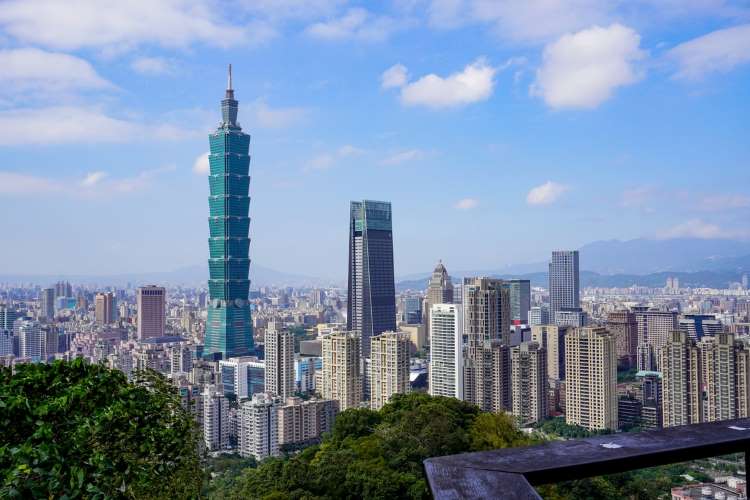
Taiwan recently announced its plan to open the third Taipei Economic and Cultural Center in Mumbai. This move is in line with the growing interest of Taiwanese companies in India. By establishing an office in Mumbai, Taiwan looks to promote its economic interests by having a presence in India’s fast growing western region.
China does not recognise Taiwan as a separate nation since it was formed by fleeing nationalists in 1949. India maintains the status quo by not having formal diplomatic relations with Taiwan. Nevertheless, the two countries maintain trade offices and have strengthened cooperation in various sectors such as economics, trade, science and technology, critical supply chains, culture, education, and traditional medicine.
READ | Climate change: El Niño’s resurgence spells trouble
The ministry of foreign affairs of Taiwan (official name is the Republic of China) said the new center will enhance trade and investment opportunities with India. Taiwan already operates offices in Delhi and Chennai, which function as de facto embassy and consulate, respectively.
Taiwan’s significance as a trade partner for India lies in its major role in the global manufacturing and technology sectors. Many Taiwanese companies, including Foxconn, are vital suppliers in global supply chains. Taiwan specializes in innovative smart machinery production, and India can greatly benefit from this, especially given the growing frustration with China’s dominance in the manufacturing sector. Deeper trade relations between Taiwan and India pose a threat to China’s manufacturing capabilities.
Indian exports to Taiwan (Rs billion)

Indian imports from Taiwan (Rs billion)

Taiwan is the largest producer of semiconductors, essential components for laptops, smartphones, and motor vehicles. It is also home to some top technology firms such as Asus and Acer. India can leverage Taiwan’s expertise as it aims to build a robust semiconductor and display ecosystem, establishing itself as a global hub for electronics manufacturing.
Taiwan produces 70% of the world’s semiconductors and more than 90% of the advanced chips. India naturally desires production facilities from top Taiwanese chip producers, including Taiwan Semiconductor Manufacturing Corporation (TSMC), the world’s largest chipmaker with clients like Apple.
For Taiwan, strengthening trade relations with India is crucial as part of its strategic move known as the China-Plus-One strategy. This strategy aims to encourage businesses to expand their operations beyond China while maintaining a presence in that country. Stronger trade relations between Taiwan and India would enhance Taiwan’s influence and presence in the South Asian region, historically dominated by China.
Taiwan’s decision to set up the Mumbai office is prompted by the emergence of India as a major world economy. India is the fifth largest economy and the most populous country. India’s enormous market and related business opportunities have made it a major investment destination for global enterprises. Mumbai, the financial capital of India, has consulates of various countries including the United States.
The TECC center in Chennai, established in 2012, played a significant role in attracting Taiwanese businesses and factories to southern India, with nearly 60% of all Taiwanese investments in India being made in the region. Chennai and its surrounding areas have benefited from Taiwanese manufacturing industries’ investments, and it is expected that the new center in Mumbai will have a similar effect in western India. Foxconn which is Apple’s largest supplier has a manufacturing facility in Tamil Nadu. The Taiwanese company is planning to set up another facility in Karnataka.
After the escalation of its border dispute with China, India is building closer ties with countries in Southeast Asia and Asia Pacific. While India and Taiwan have been trade partners for nearly three decades, both sides have deliberately maintained a low profile in their ties, focusing on commerce, culture, and education to avoid provoking China. Trade between the two countries has grown significantly, rising from $2 billion in 2006 to $8.9 billion in 2021.
Close economic ties between Taiwan and India have the potential to alter the geopolitical balance of the Asia Pacific region. In a region traditionally dominated by China’s influence, Taiwan’s expanding presence and collaboration with India introduce an alternative dynamic. India, aiming to diversify its economic partnerships and reduce reliance on China, views Taiwan as a strategic ally in its endeavour to counterbalance China’s influence. This growing partnership not only serves their respective economic interests but also contributes to a more equitable power balance in the region.
Furthermore, the collaboration between Taiwan and India extends beyond economic realms. Both nations share common democratic values and a commitment to upholding regional stability. Taiwan’s experience in navigating China’s assertiveness and its unwavering resolve to safeguard its sovereignty resonates with India’s own challenges in managing border disputes with China. By deepening cooperation in defence, security, and technology domains, Taiwan and India can forge a stronger alliance built on shared interests and mutual trust.
As Taiwan expands its diplomatic presence in India, it will become a key player in the South Asian region. With its technological expertise, manufacturing capabilities, and unwavering commitment to democratic values, Taiwan emerges as a reliable partner for India’s pursuit of economic growth and strategic influence. The burgeoning partnership between Taiwan and India not only delivers mutual benefits but also heralds a new era of regional cooperation and power equilibrium in the South Asian region.

